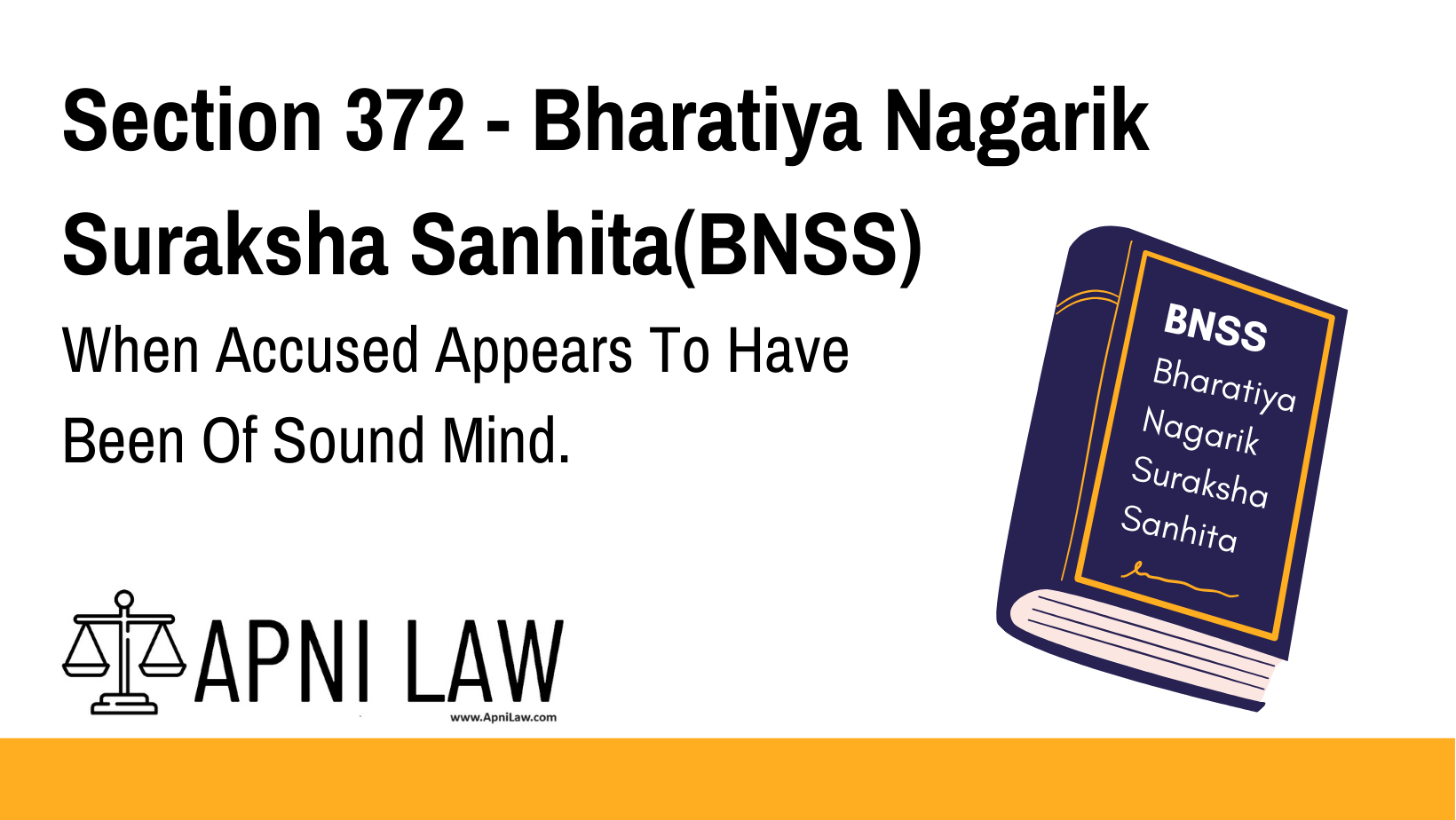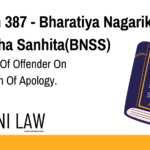Code
372.
When the accused appears to be of sound mind at the time of inquiry or trial, and the Magistrate is satisfied from the evidence given before him that there is reason to believe that the accused committed an act, which, if he had not been having a mental illness, would have been an offence, and that he was, at the time when the act was committed, by reason of mental illness, incapable of knowing the nature of the act or that it was wrong or contrary to law, the Magistrate shall proceed with the case, and, if the accused ought to be tried by the Court of Session, commit him for trial before the Court of Session.
Explanation
Section 372 of the Bharatiya Nagarik Suraksha Sanhita (BNSS) outlines a procedure for situations where the accused appears to have been of sound mind at the time of inquiry or trial, but the Court finds that the person committed an offense while suffering from a mental illness. In such cases, the Magistrate is required to determine whether the accused, due to their mental condition, was unable to understand the nature of the act or its wrongfulness.
If the Magistrate believes that the accused was mentally ill at the time the act was committed and is incapable of understanding the nature of the act, they can still proceed with the case. If the offense warrants it, the Magistrate will commit the accused for trial before a Court of Session.
This section ensures that mental illness is taken into account when determining the appropriate legal response, reflecting the principle that individuals suffering from mental illness should be treated differently under the law than those who are mentally fit.
Illustration
Example 1: Accused Appears to be of Sound Mind
A person is charged with an offense, and during the trial, it is revealed that they had a mental illness at the time the offense was committed. The Magistrate considers the evidence and determines that, due to their mental condition, the accused was incapable of understanding the wrongfulness of their actions. The Magistrate proceeds to commit the accused to trial before a Court of Session.
Example 2: Trial Based on Mental Illness
A person is charged with theft, but during the trial, it becomes clear that they were suffering from a mental disorder at the time of the incident. The Magistrate is satisfied that the accused could not have known that their act was wrong because of the mental illness. As per Section 372, the Magistrate proceeds with the case and commits it to the Court of Session for a more thorough trial.
Common Questions and Answers on Section 372 BNSS
1. What happens if the accused appears to be of sound mind, but has a mental illness?
- Answer: If the accused is found to have a mental illness that affected their understanding of the nature or wrongfulness of their actions, the Magistrate may still proceed with the case. If necessary, the Magistrate may commit the case to the Court of Session for trial.
2. How does Section 372 address mental illness in criminal cases?
- Answer: Section 372 recognizes the importance of mental illness in determining an individual’s criminal liability. It ensures that if a person committed an offense due to mental illness, they will be treated appropriately in the legal process.
3. Can the Magistrate still proceed with the trial if mental illness is suspected?
- Answer: Yes, if the Magistrate believes the accused was mentally ill at the time of committing the offense, they can proceed with the case and, if required, send the case to the Court of Session for further trial.
Conclusion
Section 372 BNSS highlights the significance of considering mental health during criminal trials. It ensures that an individual’s mental condition is properly evaluated, and if the accused was unable to understand the nature or wrongfulness of their actions due to mental illness, they may be committed to trial in a manner that accounts for their mental state. This approach aligns with modern legal standards for mental health and justice.








